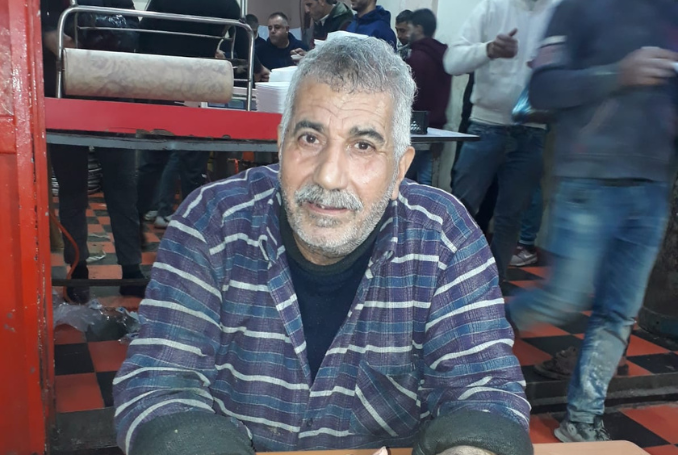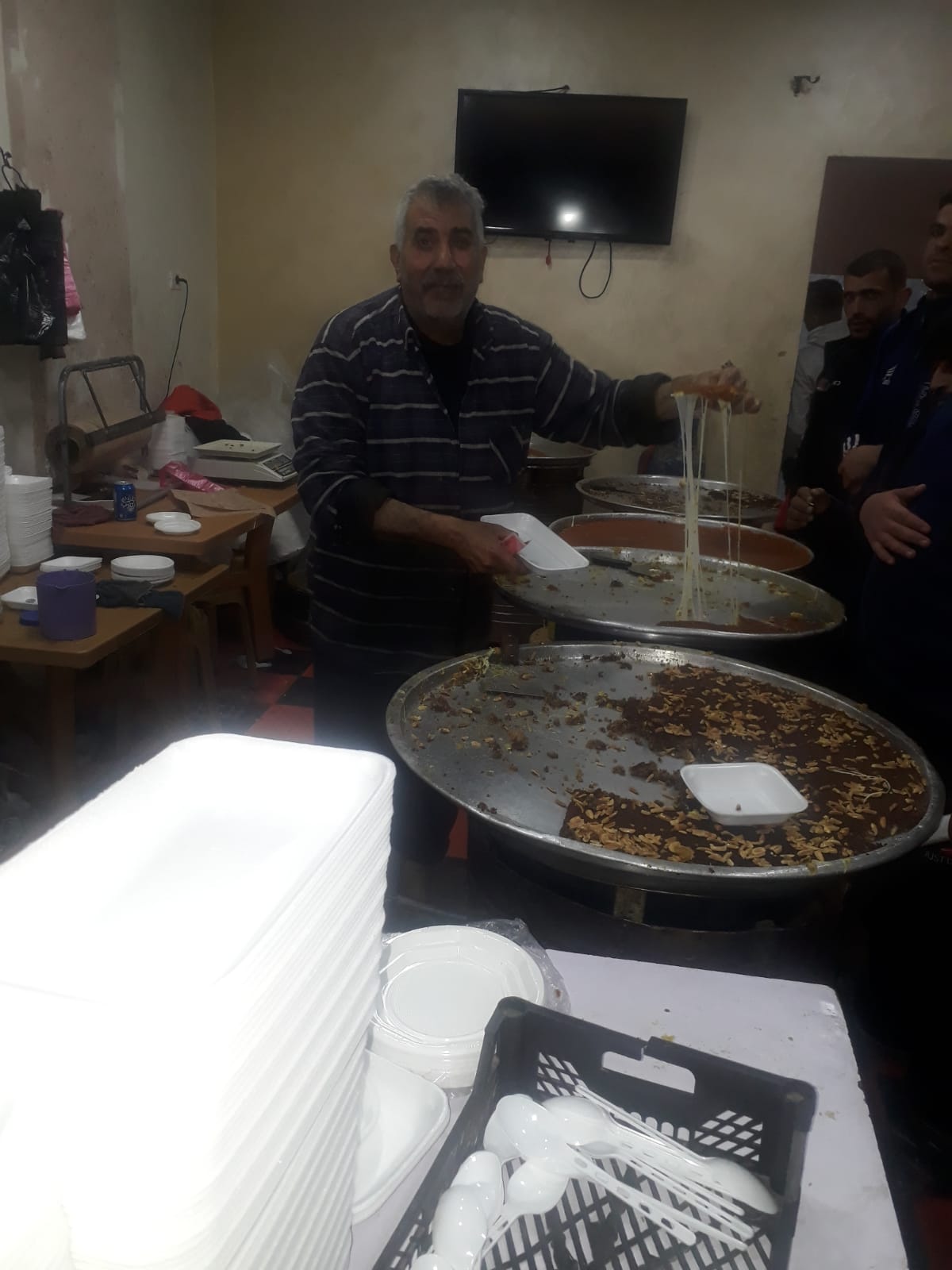
Abu al-Ghalaba,‘ father of the poor’, is the nickname Masoud Muhammad al-Qatati acquired for selling a plate of knafeh for only 1 shekel, and often giving it away to those who cannot afford it.
Famed for his knafeh, in both Nabulsi and Arabic recipes, al-Qatati has been working for over 53 years on perfecting his sweets.
“I used to make trays of desserts on this cart during the Second Intifada, fill it up and take it out, then sell it in the streets,” Al Qatati says, pointing to the same cart that stands in front of his shop as a reminder of his humble beginnings.
When I walked into al-Qatati’s tiny shop, on Ain Salah El-Din Street, I was welcomed by warm smiles from him and his sons, along with the irresistible smell of caramelized sugar and gooey cheese.
Al-Qatati’s passion for baking started when he was only 8 years old. He would run away from school, watch and learn from the famous pastry chefs, the likes of Haji Zakariya Saqallah and Haji Muhammad Daban. Eventually, he started working for Al-Muznar where, for 25 years, he kept perfecting his skills.
Al-Qatati’s knafeh is so popular that people come from all over Gaza to taste it. His knafeh has become well known even outside Gaza and people often ask him to send photos of his large knafeh trays.
His wife and children help him in his work. For him, it was important to keep the prices low, so that everyone could enjoy his knafeh, including large families.
 z
z
“For a long time, I have been selling desserts for one shekel, 2 shekels, or 3 shekels,” al-Qatati told The Palestine Chronicle.
“I don’t want to make huge profits, I just love to please God and the poor. Everything I sell is for the sake of God”.
Carrying on with this mission is not always easy, due to his competitors but also to the rising prices. However, he feels content just making enough to look after his family while also feeding those that are in need.
“After all these years, I only own a Tuk-tuk, a mini taxi. But I don’t want to be too rich. I don’t want to be poor either, I just want to live a decent life. I don’t care about fancy cars and things like that”, al-Qatati said.
Al-Qatati’s working day starts very early in the morning. The shop opens at 4 pm and closes at 8 pm. He managed to build a successful business, with many loyal customers who have been coming to his shop for years.
“I will follow Abu Shadi wherever he goes because his knafeh is excellent,” Zain Nahed Nain, one of the customers, told me.
Following the interview, it was hard to leave that friendly, warm environment. As I walked out, I thought I, too, would like to become one of al-Qatatati’s loyal customers.

– Salsabeel Abu Loghod is a student at Al-Aqsa University in Gaza, specializing in English literature. Her writings appear in We Are Not Numbers. WANN contributed this article to The Palestine Chronicle.







